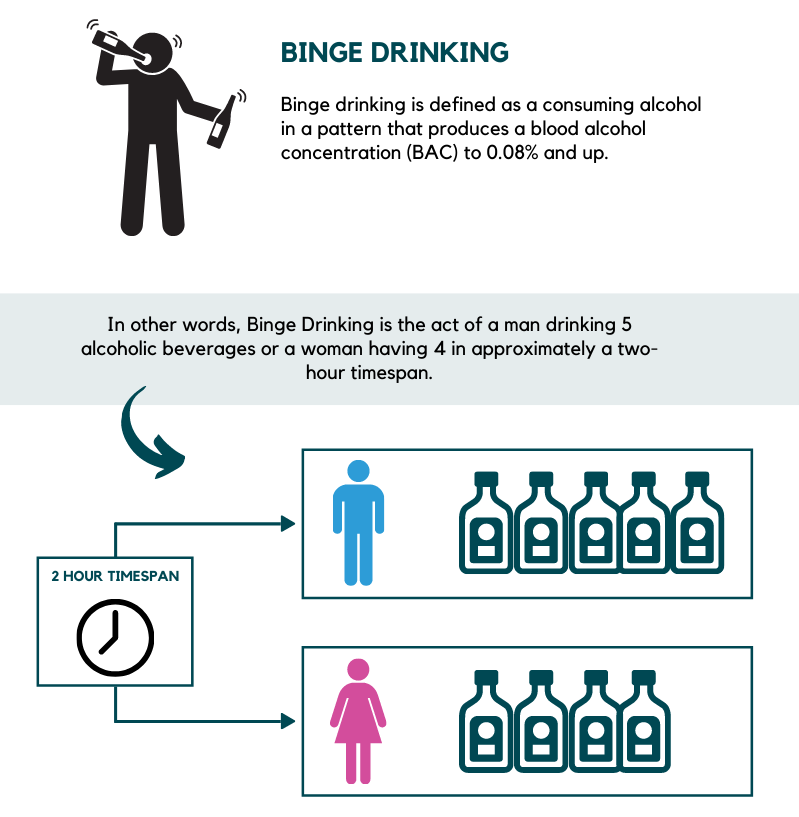
27 Oct Alcohol Abuse vs. Alcoholism: Explaining the Differences
Alcohol abuse is a serious issue. Oftentimes, it is difficult to distinguish between typical alcohol abuse and something more severe. When it comes to alcohol addiction, there are two common terms: alcohol abuse and alcoholism. While these terms might be used interchangeably, they are both unique issues with their own set of identifiers and separate challenges.
Both alcoholism and alcohol abuse are damaging to an individual’s health, mental well-being, and overall life. However, it is important to be able to distinguish between the two to understand the severity of your addiction and what form of treatment you may need.
What is Alcohol Abuse?
Alcohol abuse is best defined as the misuse of alcohol in a manner that negatively impacts one’s life in a variety of ways. According to the CDC, alcohol abuse is a pattern of drinking that results in harm to one’s health, interpersonal relationships, or the ability to complete responsibilities such as work. Alcohol abuse and depression often coincide, proving the fact that the misuse of alcohol causes harm to an individual’s health.
Examples of alcohol abuse include:
- The failure to maintain responsibilities at work, school, or home
- Drinking while driving or during other dangerous and inappropriate situations
- Drinking that results in repeated legal consequences
- The deterioration of relationships that have been impacted by frequent alcohol consumption
Common characteristics of alcohol abuse include heavy drinking and binge drinking. To explain, binge drinking is the consumption of multiple alcoholic beverages (four or more for women, five or more for men) within a two-hour period. Unfortunately, this type of alcohol abuse may result in brain damage and additional severe health risks.
While continued alcohol abuse leads to alcoholism, alcoholism includes various additional symptoms in addition to the signs of alcohol abuse.

How is Alcoholism Different than Alcohol Abuse?
Also referred to as alcohol dependence, alcoholism is a chronic, lifelong disease where the body becomes physically dependent upon alcohol. If an individual who suffers from alcoholism decreases their alcohol intake, they will begin to experience symptoms of alcohol withdrawal. Individuals dealing with alcohol dependence typically drink on a daily basis and require professional alcoholism treatment to recover.
Common signs of alcoholism include:
- Experiencing cravings for alcohol
- Being unable to limit drinking
- Failing to quit drinking
- Requiring increased amounts of alcohol to achieve the same effects (tolerance)
- The emergence of withdrawal symptoms when not drinking
- Continued alcohol use despite the recurring physical, psychological and personal problems associated with alcoholism
How Are Alcoholism and Alcohol Abuse Related?
The biggest difference between alcoholism and alcohol abuse is that some individuals who abuse alcohol are not dependent on the substance as alcoholics are. To explain, these people do not experience the symptoms of withdrawal, cravings for alcohol, or tolerance associated with alcoholism.
However, individuals who frequently abuse alcohol are at a high risk of developing alcoholism. When someone continuously drinks alcohol, the body becomes accustomed to the presence of the substance in its system. As a result, dependence and tolerance will develop, indicating the probability of addiction and the possibility of withdrawal symptoms.
While alcohol abuse and alcoholism have always been connected, they were recognized as distinct diagnoses until the most recent edition of the Diagnostic and Statistical Manual of Mental Disorders-IV (DSM-IV). In this manual, the two terms are combined into one diagnosis: alcohol use disorder. Alcohol use disorder is classified by mild, moderate, or severe symptoms of alcoholism.
What is Alcohol Use Disorder?
According to the DSM-V, alcohol use disorder (AUD) is defined as, “a problematic pattern of alcohol use leading to clinically significant impairment or distress”. In other words, an alcohol use disorder is characterized by the frequent misuse of alcohol leading to adverse effects in one’s life.
Also, the DSM-V outlines symptoms that individuals with an AUD experience within a year:
- drinking for longer amounts of time than intended or in higher amounts
- unsuccessful attempts to control or reduce alcohol consumption
- long amounts of time spent drinking, obtaining, or recovering from alcohol abuse
- experiencing intense cravings for alcohol
- being unable to fulfill obligations due to alcohol use
- continuing to drink after experiencing an inability to fulfill obligations
- repeated alcohol consumption in unsafe or hazardous situations
- giving up activities to drink alcohol instead
- continuing to drink after becoming aware of the negative effects on one’s health
- developing a tolerance to alcohol
- experience symptoms of alcohol withdrawal
In addition, the DSM-V classifies AUDs by mild, moderate, and severe cases. An individual with a mild AUD will experience two to three of the previously mentioned symptoms. Individuals suffering from a moderate case of AUD will experience four to five symptoms. Lastly, individuals with severe AUDs will experience six or more of the above-mentioned symptoms of alcohol use disorder.
The Symptoms of Alcohol Withdrawal
Withdrawal symptoms stemming from alcohol dependence may range from irritating to fatal, depending on the severity of an individual’s alcohol use disorder. Anyone having a difficult time with ceasing their alcohol misuse should seek proper treatment, such as a medically supervised detox program.
Common symptoms of alcohol withdrawal include:
- sweating
- loss of appetite
- nausea
- nervousness
- shakiness
- restlessness
- anxiety
- irritability
- vomiting
- increased heart rate
- headache
- insomnia
- tremors
- disorientation
- seizures
- delirium tremens
Utilizing programs such as medically-assisted alcohol detoxes helps alleviate the symptoms of alcohol withdrawal. These facilities are equipped with evidence-based methods and medications to assist patients through the detoxification process. Contact a professional alcoholism treatment provider immediately if you have experienced any of the previously mentioned symptoms of alcohol withdrawal.
Alcohol Abuse vs. Alcoholism: Finding Treatment
If you or a loved one identify with any of the symptoms of alcohol abuse, alcoholism, or alcohol use disorder, it is time to attend professional substance abuse treatment. At Florida Recovery Group, we are staffed with only the most experienced and qualified doctors, nurses, mental health specialists, and addiction experts. Contact us today for more information on how to recover from alcohol addiction.





